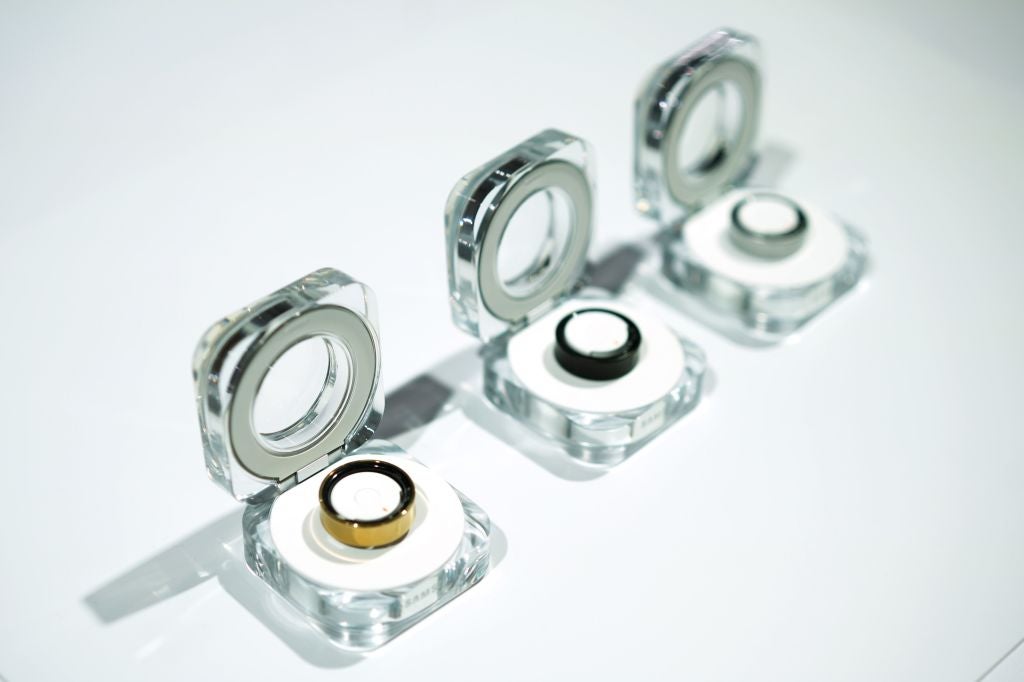
Samsung launched the Galaxy Ring on Wednesday (10 July), becoming the first tech giant to release a ‘smart ring’ product which can track movement, sleep, heart rate and more.
The South Korean company said the smart ring is designed to be worn 24 hours-a-day and will have a battery life of up to seven days. The ring will help users monitor their health during the day and while they are asleep.
Samsung is betting on an increased demand for health monitoring to drive sales for new wearable devices like smart rings. The release marks another bid to rival Apple in the wearables market, which has long dominated with the success of its Apple Watch range.
The ring will retail for $399 and can be worn in the shower or while swimming, weighing just three grams, Samsung said.
Smart rings have been around for over a decade, most popular with professional athletes. However, the Galaxy Ring is the first time a tech giant has released a version of the technology.
The ring will analyse users’ biometric data using AI, which will then provide an overview of an individual’s health.
How well do you really know your competitors?
Access the most comprehensive Company Profiles on the market, powered by GlobalData. Save hours of research. Gain competitive edge.

Thank you!
Your download email will arrive shortly
Not ready to buy yet? Download a free sample
We are confident about the unique quality of our Company Profiles. However, we want you to make the most beneficial decision for your business, so we offer a free sample that you can download by submitting the below form
By GlobalDataThe ring will also provide an ‘energy score’ and deliver recommendations on areas which need improvement.
Samsung also revealed its new Galaxy Watch range on Wednesday. The new watch will track the wearer’s Advanced Glycation End Products (AGEs) index, which can provide details on metabolic health and biological age, the company said.
Hon Pak, Samsung’s mobile digital health chief, said AGEs readers “have existed in larger hardware and we’ve now miniaturised that and made it possible to measure that through the watch for the very first time.”
Wearable tech is growing, but slowly
According to GlobalData’s Wearable Tech Thematic Intelligence 2023 report, enterprises will be a key market for wearable tech over the next few years, eventually even outpacing the consumer segment.
Wearable tech devices are currently deployed across logistics, defence, manufacturing, travel and tourism sectors.
Although the wearable tech industry is growing, the hype from wearables such as smart glasses and virtual reality headsets has failed to make it mainstream due to a lack of appealing use cases and slow technical development.
In 2023, several big players struggled to create compelling products and meet the inflated expectations they had created.
The Apple Vision Pro was released in the US in February, which Apple marketed as a multipurpose piece of kit that works differently to every other AR headset on the market.
Despite the buzz leading up to the headset’s release, recent reports have shown that sales of the headset are steadily declining. A common review of the Vision Pro is that its technology was impressive but unessential right now.
In order for more revenue to be generated, devices will need to develop better battery life, become more lightweight and find more practical uses, according to GlobalData’s report.
The wearable tech industry was worth $99.5bn in 2022 and will reach $290.6bn by 2030, expanding at a compound annual growth rate of 14.3% between 2022 and 2030, according to GlobalData forecasts.







